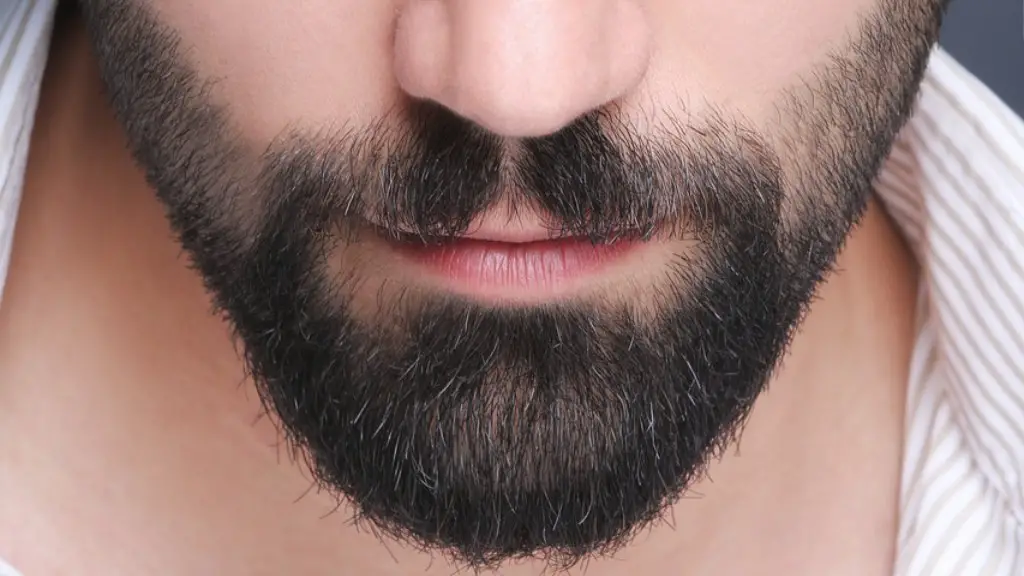Whether castor oil helps with beard growth is an oft-discussed subject. Many people rely on natural remedies to help them in growing a thicker, healthier beard, and castor oil is one such remedy that’s often been touted to facilitate beard growth. But is it really a must-have item for a healthy and full beard?
What is the evidence supporting the use of castor oil for beard growth? Unfortunately, very little scientific evidence exists to suggest that castor oil does anything to aid in beard growth. However, some anecdotal evidence exists that suggests that it can have some benefit. There are some studies that suggest that the ricinoleic acid present in castor oil is able to penetrate the skin and boost the production of testosterone. This suggests that castor oil may be beneficial for accelerating beard growth in some men, but more research needs to be done to verify this.
What do experts say about using castor oil for beard growth? According to experts, the best way to achieve a healthy and full beard is by maintaining a healthy lifestyle. Eating a balanced diet and exercising regularly can help boost hair growth. Moreover, supplements, like biotin, can also be taken to maximize the growth of your beard. While some experts believe that castor oil may enhance beard growth, they caution against relying solely on castor oil and suggest that it should be used only as an adjunct to a healthy lifestyle.
It’s important to note that castor oil can be an irritant and should be used with caution. Before applying it to your face, make sure to test it on a small patch of skin to ensure that you do not suffer any kind of reaction. If you decide to apply it to your beard, make sure to dilute it with a carrier oil, like argan or jojoba oil, to reduce any chance of irritation.
What other benefits might castor oil provide? In addition to possibly helping to accelerate beard growth, castor oil can be beneficial for other hair conditions, like hair loss or dry hair. It’s thought to be able to nourish the scalp and the hair follicles, which can help promote healthy hair growth. It also has antibacterial and antifungal properties, which can help to protect the scalp from infections.
Overall, while there is anecdotal evidence that castor oil may be useful for helping to accelerate beard growth, evidence is still lacking. Ultimately, the best way to grow a healthy and full beard is through a healthy lifestyle. If you choose to try castor oil, make sure to test it on a small patch of skin beforehand and to dilute it before applying it to your face.
Can Castor Oil be Used to Treat Skin Conditions?
Castor oil is often used to help treat a variety of skin conditions, such as dry skin, eczema, and psoriasis. This is because it contains both omega-3 and omega-6 fatty acids, which help to nourish the skin by retaining its moisture. Additionally, even though it does not have any antiseptic or antibacterial properties in itself, the ricinoleic acid it contains helps to prevent the growth of harmful bacteria on the skin.
Castor oil is usually applied topically to the affected area, although some people may opt to take it orally or add it to a bath. That said, it’s important to talk to a doctor before taking castor oil orally, as it can interfere with the efficacy of certain medications. Additionally, when it’s used topically, some people may experience a reaction, such as redness or itching, so it’s best to test it on a small patch of skin first.
Overall, castor oil is a generally safe and inexpensive way to help treat a variety of skin conditions. However, it’s important to talk to your doctor or dermatologist before using it to make sure it’s the right course of action for your particular skin condition.
Can Castor Oil be Used to Enhance the Appearance of Eyelashes and Eyebrows?
Some people also claim that castor oil can be used to enhance the appearance of eyelashes and eyebrows. This is because the oil is believed to be able to nourish the hair follicles, which in turn can help promote healthier and thicker growth of eyelashes and eyebrows. Additionally, the fatty acids present in castor oil help to keep the hair hydrated and can help prevent breakage.
If you decide to use castor oil to help enhance the growth of your lashes or eyebrows, it’s important to ensure that the oil does not come in contact with your eyes. Additionally, make sure to test it on a small patch of skin before you apply it, as it can be irritating for some people. You should also only use a small amount of the oil, as using too much can cause your eyebrows or eyelashes to look greasy.
Overall, castor oil can be a good option for enhancing the appearance of your lashes and eyebrows. However, you should remember to be cautious and consult a doctor before you use it to ensure that it won’t cause any unwanted side effects.
Can Castor Oil Help Reduce Scalp Inflammation?
Castor oil can also help to reduce scalp inflammation, which is often the underlying cause of hair thinning and loss. This is because the oil contains ricinoleic acid, which has anti-inflammatory as well as antifungal and antibacterial properties. Additionally, the fatty acids present in castor oil help to nourish and hydrate the scalp, which can help to promote healthy hair growth.
To use castor oil to reduce scalp inflammation, you can use it as a pre-shampoo treatment. Before applying the oil to the scalp, you should warm it up, as this helps to open up the pores and make it easier for the oil to penetrate the scalp. You should also dilute it with a carrier oil, like jojoba oil or argan oil, to reduce the chances of it irritating the scalp.
If you experience any symptoms of scalp inflammation, such as itching or redness, talk to a doctor before trying to treat it with castor oil. Additionally, make sure to be careful with how much of the oil you use, as too much of it can cause unwanted build-up on the scalp.
How to Use Castor Oil for Hair Growth?
To use castor oil for hair growth, it’s important to know how to apply it properly. One of the best ways is to use the oil as a pre-shampoo treatment. This involves applying a few drops of the oil onto the scalp, massaging it in, and then letting it sit for up to an hour before shampooing and conditioning. Additionally, you should make sure to warm up the oil before applying it, as this helps to open up the pores and make it easier for the oil to penetrate the scalp.
You should also make sure to dilute the oil with a carrier oil, such as jojoba oil or argan oil, before applying it to your scalp. Additionally, make sure to only use a small amount of the oil, as using too much can lead to a greasy build-up on the scalp. Finally, if you experience any scalp irritation, such as redness or itching, stop using the oil and talk to a doctor.
Overall, castor oil can be a good option for those looking to improve the health of their hair. Just remember to use it carefully and to consult a doctor if you experience any unwanted side effects.




